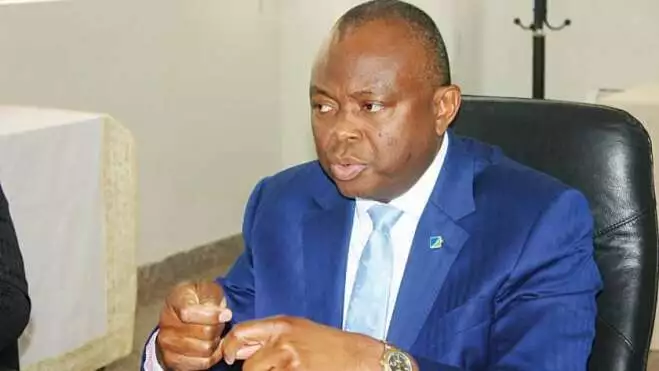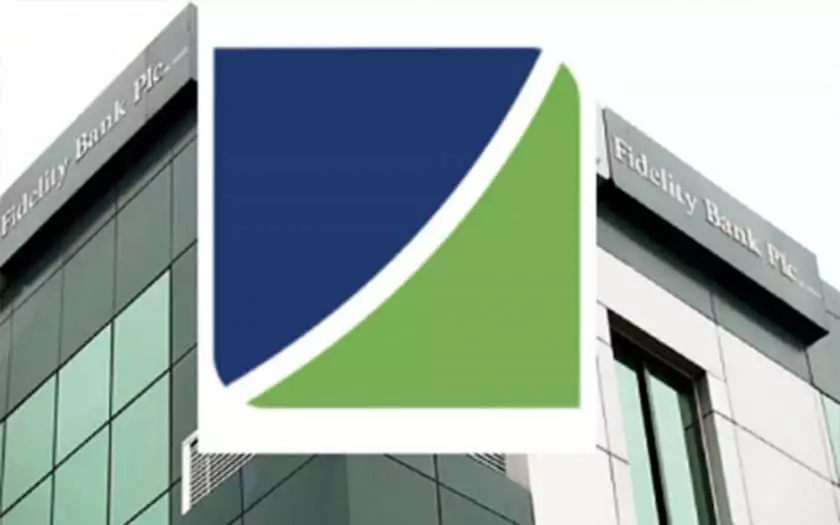By Bayo Bernard, Business Editor
Five years ago, on January 2, 2014 Nnamdi Okonkwo had mounted the seat as Managing Director of Fidelity Bank Plc with uncertainty looming large among investors and staff, his ability to break the ice in the highly competitive financial sector.
While many predicted that he would take the bank far considering his track record as a seasoned banker and administrator, only a few believed at the time that he would surpass the achievements of his predecessors in such unimaginable way and style.
It’s also possible that the Anambra state born banker did not imagine that the money lender will become the behemoth that it’s today with huge capital outlay to its credit under his watch.
The unprecedented growth has spurred the bank to want to join the tier one banks in the country such as First Bank, Zenith, UBA, GT Bank and Access Bank.
Indeed, that’s not going to come easy financial analysts have warned recently, but with the four strategic plan laid out last year by its managing director, Fidelity Bank appears set to hit the bull’s eye by 2022 insist keen market watchers.
For instance, Fidelity Bank used to be known as the bank for a section of the country, Igbo bank as those with this mindset usually say, because of the once held belief that traders from the eastern part of the country have made it a bank of choice for their business.
That perception, industry players say, has now changed particularly in the last five years that Okonkwo has superintended the bank as its chief executive officer.
His management has not only expanded the balance sheet of the hitherto ‘one corner’ bank, with sheer competence and focused team, Fidelity Bank now opens, for business, over 240 branches across the country, with over four million customers to the admiration of the banking public and its shareholders.
Changing the ways the bank conducted business in the past, Okonwko warned on resumption, is the only way, if the bank was to join the league of stable and strong banks in the country.
He was right. The results of that foresight are now there for many to see.
Few weeks ago on April 2, when the bank called its shareholders to its Annual General Meeting, AGM the owners of the bank knew they must come with knives to share the profit.
Recall that among the tier two banks in the country Fidelity Bank was one of the very first to open its books to the Nigerian Stocks Exchange, NSE a la the public for scrutiny.
The event was not a declaration of loses as some in its categories have done in the last few year.
The bank has been making steady profit in the last five years leaving its competitors to share the loss.
At the 2018 AGM the chief executive officer of the bank declared to the admiration and cheer of its shareholders that the bank made N23 bn profit with the year ending December 2018.
In his first year in saddle in 2015, the bank made N14 bn profit, thus setting the tone for what was to come.
The year after in 2016 Fidelity Bank declaredN9.7 bn profit despite the economic recession of that year that upset the balance sheet of many banks in the country, so much so that not even the tier one banks were left out.
The year after, in 2017 the bank shattered the records after declaring that it made N19 bn profit, a 94 percent increase compared to the previous year.
The CEO will not be a party to the African aphorism, monkey dey work bamboo dey chop. So, as the fortunes of the bank rose steadily, the life of shareholders, so-called hewers of woods must change, he said.

“We are investing heavily in digital technologies to drive our retail strategy, reduce cost and consequently improve revenue and returns for our shareholders.”
“The 2018 financial year marked the beginning of the second phase of the growth aspirations of your bank and I am happy, we closed the year impressively,” the bank’s CEO said at the 2018 AGM.
Promise made and fulfilled.
In his first year in office in 2015, each shareholder of the bank went home with 16k per share dividend, one of the highest in the sector in contemporary times.
Even though the dividend pay out to shareholders has slightly decreased to 14k per share in 2016: 11k per share in 2017 and 11k per share in the year ending December 2018, keen industry players insist that this is normal considering that the bank is not insulated from the rabid economic problems facing the economy.
Despite the obvious turn around in the bank in the last five years, the man at the centre of this prefers to be modest: the strength of Fidelity Bank, he said at the 2019 AGM, rests with the indefatigable staff.
“We are delighted by our 2018 numbers, which clearly shows a sustained performance trajectory.
We are growing our market share with continued traction in our chosen business segments.
We recorded double digits growth in interest income on our liquid assets, digital banking, FX and other income lines.”
In all, Fidelity Bank has paid close to N20bn in dividends to shareholders in the last four years.
This must have further reposed investors’ confidence in the bank because of assurance of adequate returns on their investments.
In October 2017, the bank issued a $400million Eurobond listed on the Irish Stock Exchange which was oversubscribed.
It had earlier issued a 5 year $300million Eurobond in May 2013 in the Stock Exchange, redeemable in May 2018.
Recall that Fidelity bank issued a ₦30billion local currency bond in May 2015, 17 months after Okonkwo became the CEO.
Analysts told the magazine that the bank has shown through ingenious use of modern technology and human capital that money lending business can still be profitable despite underlying stress and exposures in the financial sector of the economy.





